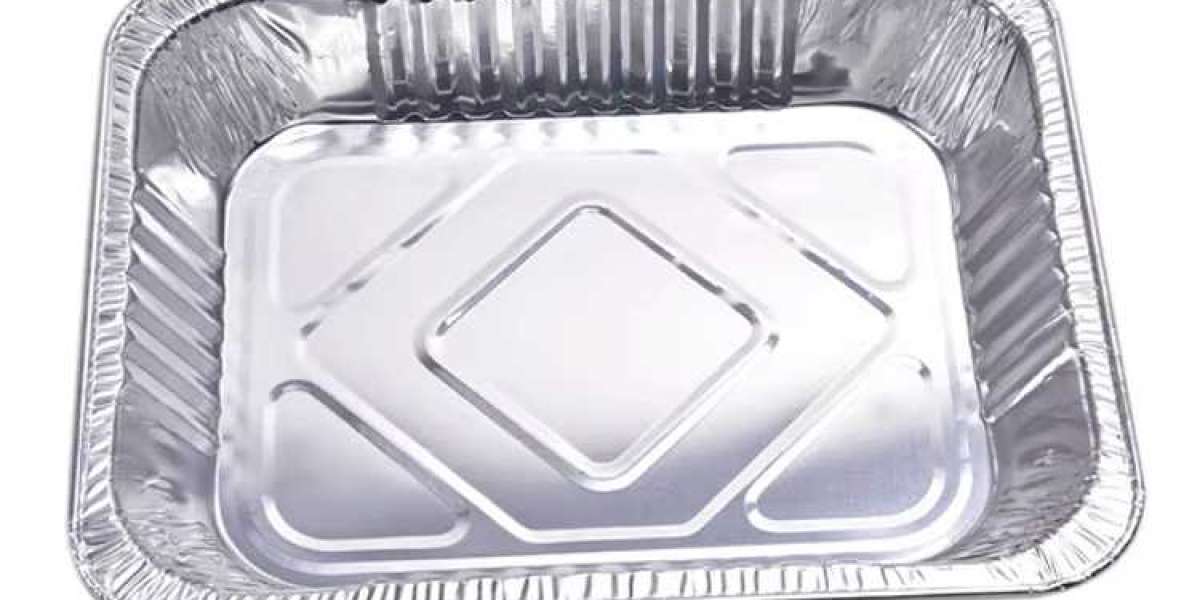Introduction
Aluminum foil trays are indispensable in food packaging, catering, and industrial applications due to their durability, heat conductivity, and recycleability. Selecting the right tray size is critical to optimizing efficiency, reducing waste, and meeting specific operational needs. This article provides a detailed full-size aluminum foil tray sizes chart alongside actionable insights to help businesses and consumers make informed decisions.
Why Aluminum Foil Tray Size Matters
Choosing the correct tray size impacts:
Portion Control: Ensures consistent serving sizes for catering or retail.
Heat Distribution: Proper dimensions prevent overcrowding, promoting even cooking/reheating.
Storage Efficiency: Maximizes freezer, oven, or shelf space.
Cost Savings: Reduces material waste and shipping expenses.
Standard Full-Size Aluminum Foil Tray Dimensions
Below is a curated chart of industry standard sizes, including dimensions (length × width × depth), capacity, and common applications.
| Tray Size (inches) | Capacity (quarts) | Ideal Use Case |
|---|---|---|
| 12 × 9 × 2.5 | 4.5 | Roasts, large cuts of meat |
| 10 × 8 × 3 | 3.5 | Casseroles, baked pasta dishes |
| 16 × 12 × 3 | 7.0 | Buffet service, bulk food storage |
| 9 × 6 × 2 | 2.0 | Side dishes, individual portions |
| 20 × 14 × 4 | 10.0 | Industrial food processing |
Note: Sizes may vary slightly by manufacturer. Confirm specifications before bulk orders.
How to Choose the Right Aluminum Foil Tray Size
Consider these factors when selecting trays:
Intended Application
Food Service: Opt for smaller trays (9×6×2) for single servings or appetizers.
Catering/Events: Medium sizes (12×9×2.5) balance portion size and ease of transport.
Industrial Use: Larger trays (20×14×4) accommodate high-volume production lines.
Capacity Requirements
Match tray depth and volume to food type. For example:Liquids/soups: Deeper trays (≥3 inches) prevent spillage.
Baked goods: Shallow trays (≤2 inches) promote crispiness.
Storage and Compatibility
Ensure trays fit standard equipment:Oven racks
Freezer shelves
Food delivery containers
Material Thickness
Most trays range from 0.04–0.08 mm in gauge. Thicker foil (≥0.06 mm) suits heavy-duty use (e.g., grilling, freezing).
Industry-Specific Recommendations
Tailor your choice to your sector:
1. Food Catering Hospitality
Buffet Service: Use 16×12×3 trays for easy access and visual appeal.
Takeout Meals: 10×8×3 trays with secure lids minimize leaks.
2. Food Processing Packaging
Meat/Poultry: Heavy-gauge 20×14×4 trays withstand rigorous processing.
Prepared Meals: Standard 12×9×2.5 trays align with automated filling systems.
3. Household Use
Meal Prep: 9×6×2 trays portion meals efficiently.
Holiday Cooking: 12×9×2.5 trays accommodate turkey or large desserts.
FAQ: Aluminum Foil Tray Sizes
Q1: Can aluminum foil trays be customized?
Yes. Manufacturers often offer custom dimensions, shapes, and thicknesses for bulk orders.
Q2: Are these trays oven-safe?
Most trays tolerate temperatures up to 450°F (232°C). Verify specifications for high-heat applications.
Q3: How do I recycle aluminum trays?
Empty and rinse trays, then dispose of them in aluminum recycling bins.
Conclusion
Understanding full-size aluminum foil tray dimensions ensures operational efficiency, cost savings, and customer satisfaction across industries. By referencing this guide and collaborating with a trusted manufacturer, businesses can streamline their packaging processes while adhering to sustainability goals.
Ready to order? Explore our catalog of FDA-compliant, heavy-duty aluminum trays tailored to commercial and household needs. [Contact our team] for volume discounts or custom solutions today!




